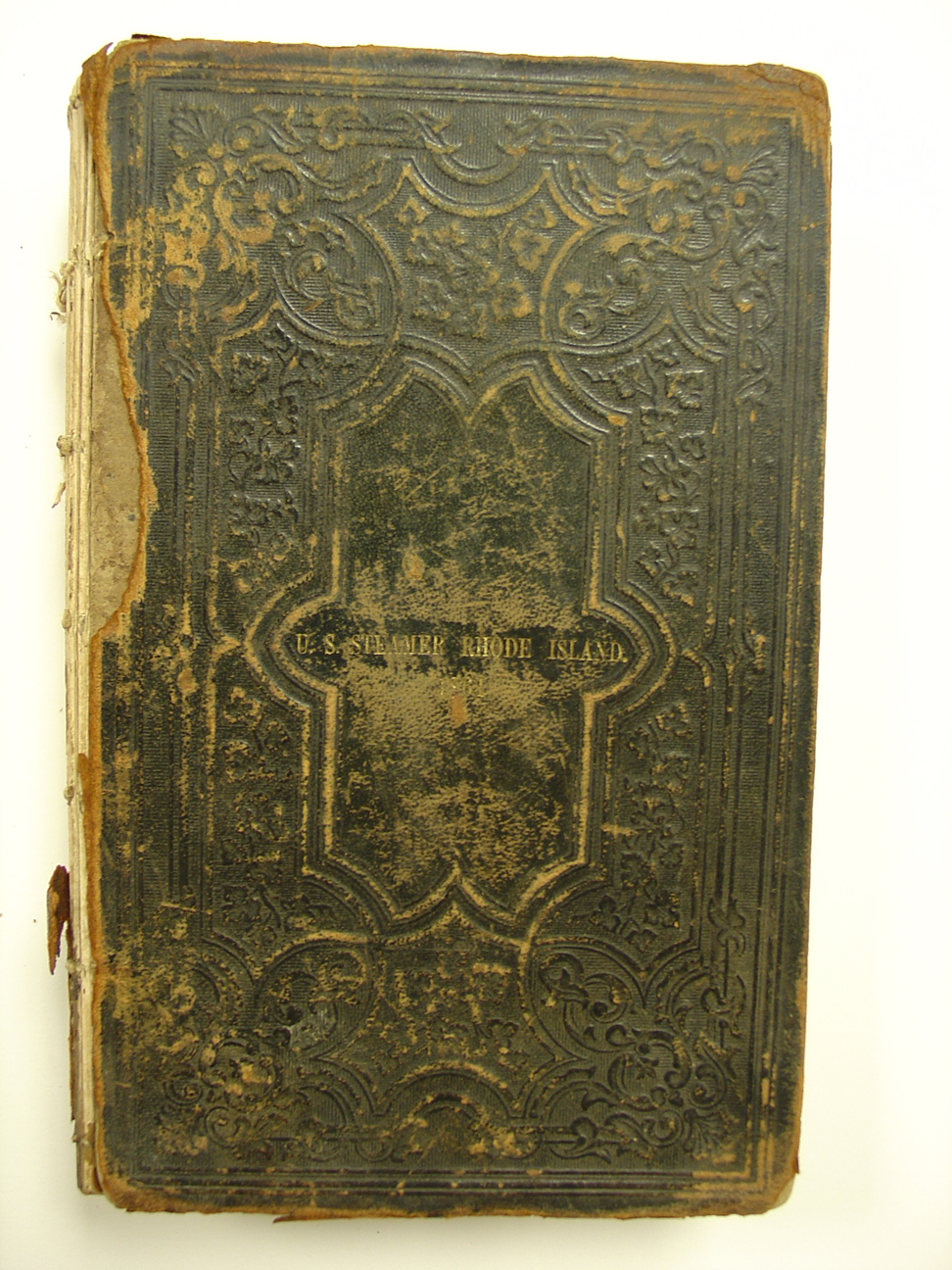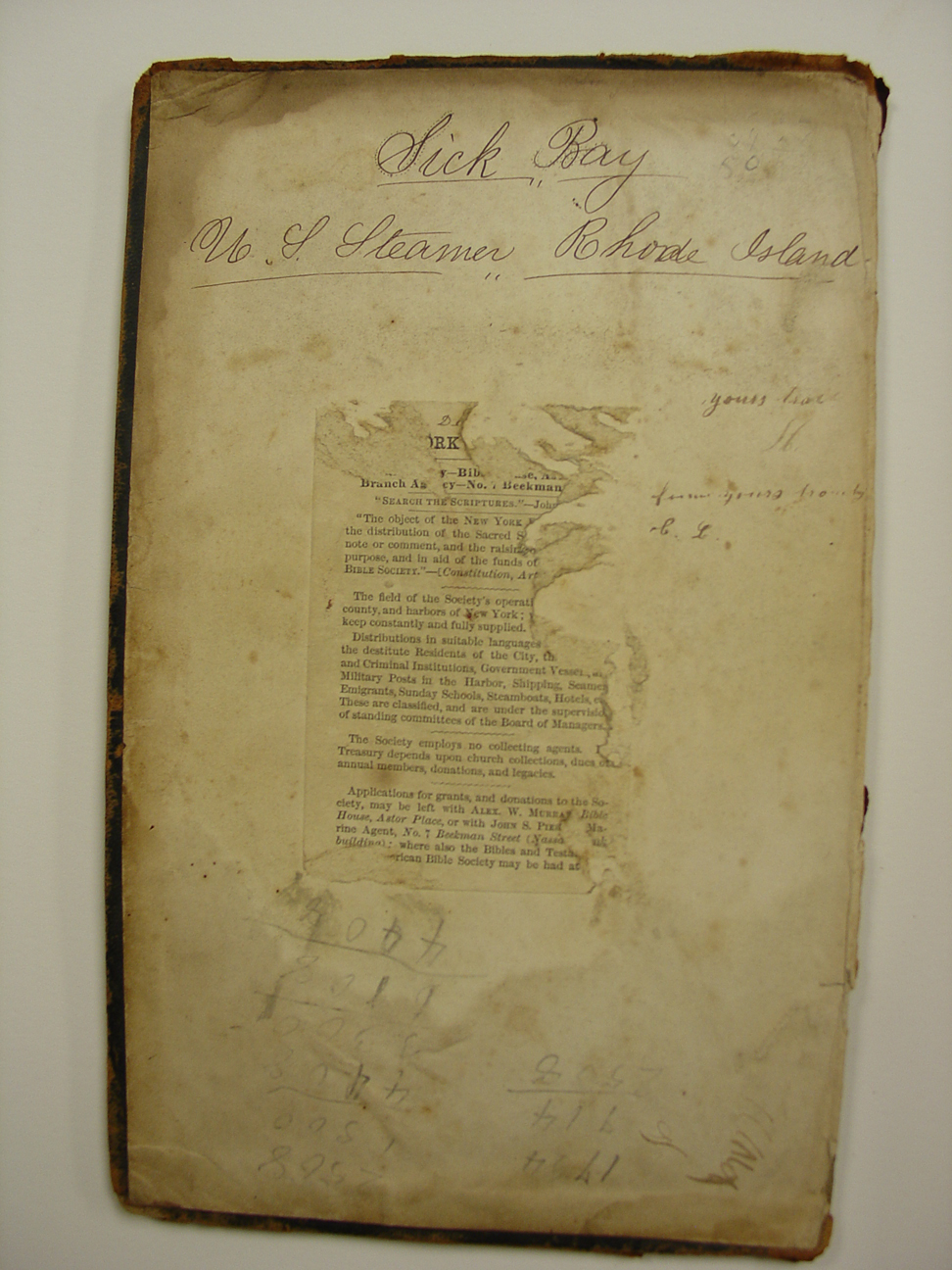A couple of months ago, the Museum decided it was time to begin exploring a program that would allow supporters to “adopt” items in the collections for restoration. While the details of this program are still in the works (museums often move slowly and deliberately on such things, and rightfully so), a call went out to staff to find objects to put up for “adoption”.
Naturally, I was interested in proposing some USS Monitor-related materials for this program, since I am the NOAA Project Archivist at the Library. So I went casting about for ideas. Thankfully, much of the Monitor-related material in the Library is in good shape, not in need of extensive restoration. But that didn’t help me in my search for items to submit for the program.
Then, I saw it in Rare Books. A small New Testament with the addition of the Psalms in rather bad condition, with the words “U.S. Steamer Rhode Island 1861” embossed in gold leaf on the cover. Inside the front cover are the words “Sick Bay, US Steamer Rhode Island.” It was exactly the right item to propose for rescue! Here is what I wrote in for my submission:
“On December 31, 1862, the US Steamer Monitor sank beneath the waves with at least 2 of her crewmen still on board. Many men had already been washed from her deck that terrible night and lost their lives. The lives of the remaining crew of the little ironclad were saved by heroic actions of the men of the steamer Rhode Island, which had had Monitor in tow. Some of Monitor’s crew, including the surgeon Grenville Weeks, suffered injury and probably ended up in Rhode Island’s sick bay. That is where they would have found this New Testament, the christening Bible of the US Steamer Rhode Island, presented to the ship by the New York Bible Society in 1861. It is an ordinary testament with the Psalms included, but it was in all likelihood present at that extraordinary moment when the Monitor went down.”
The Museum acquired this volume from a generous donor in 2006. To date, I have found no research on ship launches stating that Bibles were routinely presented to ships at christening. If anyone knows more about this practice, we would be happy to know about it.

